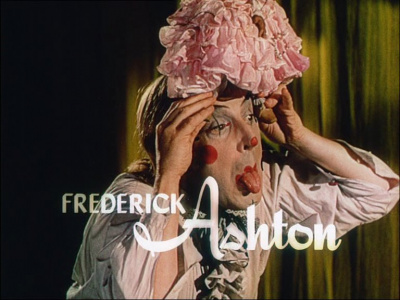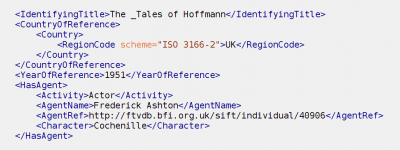Difference between revisions of "Clarifying the seemingly obvious: Cast and credits"
From filmstandards.org
| Line 14: | Line 14: | ||
The first thing to note is that his contribution is, like that of most actors, at the '''work level'''. | The first thing to note is that his contribution is, like that of most actors, at the '''work level'''. | ||
| + | |} | ||
| + | |||
| + | {| style="float: right; border: 1px solid #BBB; margin: .46em 0 0 .2em;" | ||
| + | |- | ||
| + | | valign="top" width="405px" |[[File:Ashton-xml2.png|400px]]<br /> | ||
| + | <span style="font-size:8pt"> | ||
| + | </span> | ||
| + | |||
| + | | valign="top" width="405px" | | ||
| + | Here is an XML representation of the relationship. | ||
| + | |||
| + | For uniquely identifying the '''person''', we have included an '''identifier''' from the British film Institute. At this place, we could add any number of further identifiers. | ||
|} | |} | ||
Revision as of 21:29, 5 April 2011
From the TC 372 Workshop Compendium
Cast and credits appear to be simply relationships between films and people, and perhaps fictitious characters. Is it really that simple?

